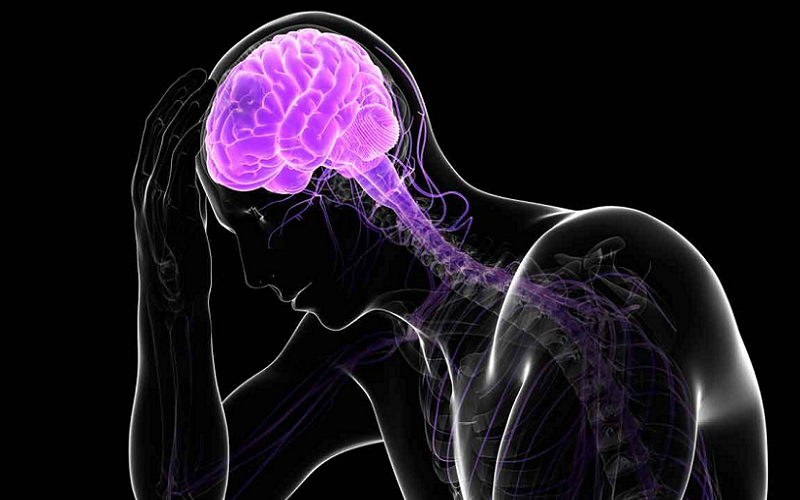
In a world where stressors surround us – from the hustle of daily life to the complexities of a global society – understanding how prolonged stress can affect our cognitive functions is more crucial than ever. Here we unravel the intricate ways in which long-term stress influences our brain, with a particular focus on memory. From the neurobiological changes it triggers to its effects on different types of memory, we provide a comprehensive view of this pressing issue.
Contents
Understanding Stress
Before getting into the specific effects of long-term stress on brain health and memory, it’s essential to establish a foundational understanding of what stress is and how it manifests. Stress, in its various forms, is not just a fleeting emotion but a complex physiological and psychological response to perceived challenges or threats.
Definition of Stress
Stress can be broadly defined as the body’s reaction to any change that requires an adjustment or response. This reaction can be physical, mental, or emotional. The body reacts to these changes with physical, mental, and emotional responses. It’s important to note that stress is a normal part of life, and in short bursts, it can be beneficial, helping us to stay focused, energetic, and alert. However, when stress becomes chronic, it can have serious implications for our health and well-being.
Types of Stress
Understanding the types of stress is crucial in identifying its sources and managing its impact effectively.
Acute Stress
Acute stress is the most common form of stress. It’s the body’s immediate response to a new challenge, event, or demand, often providing a burst of energy. Acute stress is typically short-lived and can be beneficial in small doses, helping us to manage deadlines or avoid dangerous situations [1].
Chronic Stress
Chronic stress, on the other hand, is the type of stress that we are most concerned about in relation to brain health and memory. It occurs when a person faces constant stressors that persist over an extended period. Unlike acute stress, chronic stress can have significant, long-lasting effects on our physical and mental health.
Causes and Common Sources of Long-Term Stress
Long-term stress can stem from many sources. It could be the result of a demanding job, chronic illness, dysfunctional family dynamics, or prolonged financial worries. Additionally, significant life changes, such as the death of a loved one, divorce, or retirement, can also contribute to chronic stress. It’s essential to recognize these sources as they play a critical role in how we manage and respond to stress in our lives.
The Brain Under Stress
The impact of long-term stress on the brain is profound and multifaceted. To understand this impact, it’s essential to examine how the brain reacts and adapts to chronic stress. This response not only alters the brain’s structure and function but also has significant implications for our overall cognitive health.
How Stress Affects the Brain
Stress triggers a series of physiological responses, including the release of hormones like cortisol and adrenaline. These hormones prepare the body to face a perceived threat in what’s commonly known as the “fight or flight” response. While this response is crucial for survival in acute situations, its prolonged activation due to chronic stress can lead to detrimental changes in the brain.
Neurological Changes Due to Long-Term Stress
Chronic stress can lead to various neurological changes. For one, it can result in the alteration of brain chemistry and structure. Prolonged exposure to stress hormones can affect neurotransmitter systems, potentially leading to imbalances that influence mood and cognitive function. Additionally, chronic stress can lead to neuroinflammation, which over time, may contribute to the development of neurodegenerative diseases [2].
Impact on Brain Structures and Functions
The effects of long-term stress are particularly pronounced in certain brain regions:
The Hippocampus
The hippocampus, a critical area for learning and memory, is particularly vulnerable to chronic stress. Stress can lead to the shrinking of the hippocampus, impairing its function. This shrinkage is partly due to the decreased production of new neurons, a process known as neurogenesis, which is essential for memory formation.
The Amygdala
The amygdala, involved in emotional processing, becomes more active under chronic stress. This heightened activity can lead to an increased emotional response and is linked to anxiety and depression. The amygdala’s overactivity can also disrupt its connections with other brain areas, like the prefrontal cortex, affecting emotional regulation.
The Prefrontal Cortex
The prefrontal cortex, responsible for executive functions such as decision-making, attention, and problem-solving, can also be affected by long-term stress. Stress can impair the functioning of the prefrontal cortex, leading to difficulties in concentration, decision-making, and maintaining attention.

Stress and Memory
The relationship between stress and memory is intricate and significant. While stress can sometimes enhance memory formation, particularly in the case of acute stress, chronic stress has a markedly different effect, often impairing memory function.
Types of Memory Affected by Stress
Stress does not impact all types of memory uniformly. Its effects are more pronounced in certain areas:
Short-Term Memory
Short-term memory, crucial for daily tasks and decision-making, can be significantly affected by chronic stress. Stress can impair the ability to retain and recall recent information, leading to forgetfulness and difficulty in learning new information.
Long-Term Memory
Long-term memory, which involves the storage and retrieval of information over extended periods, can also be impacted. While the formation of long-term memories can sometimes be enhanced by the emotional arousal associated with stress, chronic stress can hinder the consolidation of these memories, making it harder to retrieve them later [3].
How Stress Impairs Memory Function
Chronic stress affects memory function through several mechanisms:
- Hormonal Impact: Elevated levels of stress hormones like cortisol can interfere with neurotransmitter systems crucial for memory processing.
- Structural Changes: As previously discussed, stress can lead to changes in brain areas like the hippocampus, central to memory formation and recall.
- Interference with Neural Plasticity: Stress can disrupt the processes of synaptic plasticity, which are vital for learning and memory.
Studies and Research Findings
Numerous studies have investigated the link between stress and memory. Research has consistently shown that chronic stress can lead to impairments in both short-term and long-term memory. These studies highlight the importance of managing stress to maintain cognitive health, especially as it relates to memory function.

Additional Health Implications of Long-Term Stress
The effects of long-term stress extend far beyond the brain, impacting various aspects of physical and mental health. Chronic stress is not just a cognitive concern; it is a whole-body issue.
Mental Health Concerns
Long-term stress is a significant risk factor for several mental health conditions. Its impact on mental well-being can be profound and multifaceted.
Anxiety
Chronic stress can lead to heightened anxiety levels. The constant state of heightened alertness and the overactivity of the amygdala can increase susceptibility to anxiety disorders. This heightened state of anxiety can become a persistent part of one’s life, influencing behavior, thought processes, and overall quality of life [4].
Depression
Similarly, chronic stress is a known contributor to depression. The ongoing strain on the body and mind, the disruption of neurotransmitter systems, and the feelings of helplessness or hopelessness that often accompany prolonged stress can all contribute to the development of depressive symptoms.
Physical Health Consequences
The impact of long-term stress on physical health is equally significant. It can manifest in various forms, affecting different body systems.
Immune System Suppression
Chronic stress can weaken the immune system, making the body more susceptible to infections and illnesses. The prolonged presence of stress hormones like cortisol can disrupt the normal functioning of the immune system, impacting its ability to respond effectively to pathogens [5].
Cardiovascular Health
Stress also has a notable impact on cardiovascular health. It can lead to increased blood pressure, a higher risk of heart disease, and exacerbation of existing heart conditions. The physiological changes induced by stress, such as increased heart rate and blood pressure, put additional strain on the cardiovascular system over time.
References
[1] Protect your brain from stress
[2] Effects of Chronic Stress on Memory Decline in Cognitively Normal and Mildly Impaired Older Adults
[3] Chronic Stress Leads to Memory Loss as You Age
[4] How Stress Affects Your Memory
[5] New Study Finds Stress Can Impact Memory and How Well You Think

